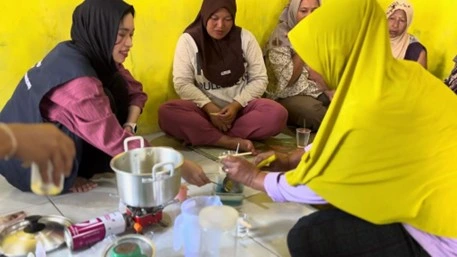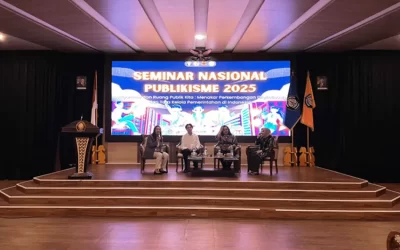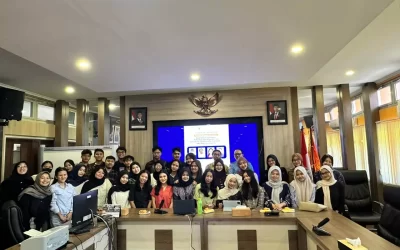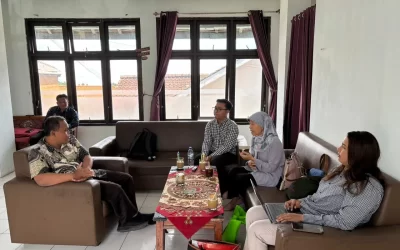The Community Service Program (KKN) is a form of student dedication to the community that aligns with the principles of the Tri Dharma of Higher Education, particularly in developing public empowerment policies based on local potential. In 2025, Diponegoro University, through the KKN-T Integrated University-Assisted Village (IDBU) program, carries out a strategic mission to build community capacity in a participatory and sustainable manner. One of the actively involved teams is Group 4 Team 1, with field supervisors (DPL) from various disciplines, including Prof. Dra. Indah Susilowati, M.Sc., Ph.D., Dr. Fathur Nurkholis, SpPD, K-P., and Dr. Hapsari Ayu Kusumawardhani, S.E., M.E.
The activity location is in Dukuh Roban Barat, Kedungsegog Village, Tulis District, Batang Regency, where the team implements programs focused on environmental management and strengthening household economies. One of the main focuses of the program is transforming used cooking oil waste into aromatherapy candles, as a form of social innovation and the development of the creative economy.
Through a participatory approach, the KKN-T team held technical training on candle-making for about 22 participants consisting of housewives and youths. This training was designed not only as a skills transfer but also as a strategy to improve local capacity in managing household waste into products of economic value. The production process involves filtering the oil, mixing it with paraffin wax, adding fragrance, and molding it with a local touch in the form of shell decorations from Pantai Pesona Indah Batang, thereby also promoting local identity.
More than just technical training, this activity aims to raise public awareness about environmental policies. The team educated residents on the environmental pollution impact of improper disposal of used cooking oil and the importance of waste management based on the sustainability concept. To support more structured environmental governance, the team also designed a used cooking oil collection scheme through the placement of collection points in residential areas, as an initial step toward forming a community-based recycling system.
In line with the spirit of public administration that adapts to the digital era, this program also includes training in product branding, business identity development, and business model digitalization. The community was trained to prepare Cost of Goods Sold (COGS), pricing strategies, and Break Even Point (BEP) calculations to create sustainable businesses. In addition, the community was also introduced to digital payment systems such as QRIS and digital wallets, as well as promotion through social media and digital catalogs as part of strengthening technology-based public services.
The KKN-T team also emphasized that aromatherapy candles made from used cooking oil have competitive economic value, and have even become export commodities and raw materials for industries such as biodiesel. This information serves as a basis for residents to realize the potential of the local economy and to encourage the creation of a self-managed creative business ecosystem.
According to Avitria, Leader of Group 4 KKN-T IDBU UNDIP, this activity is expected to create a model of community empowerment based on social innovation and digitalization, which not only supports reducing environmental pollution but also creates new inclusive and sustainable economic opportunities. This program serves as a concrete example of applying public administration values such as participatory governance, public service innovation, and community capacity strengthening based on local potential.





